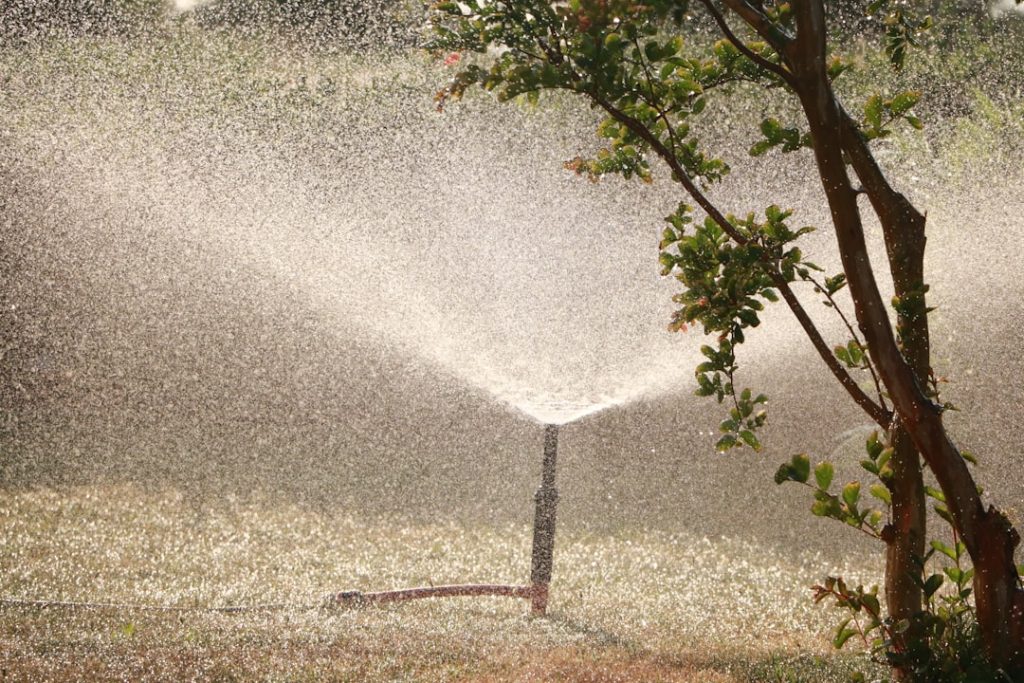Possums are nocturnal omnivores known for their opportunistic feeding habits. They consume a diverse diet, including fruits, vegetables, insects, small animals, eggs, and young chicks, making them a potential threat to chickens. These marsupials are carriers of diseases such as tuberculosis, leptospirosis, and spotted fever, which can be transmitted to chickens and other animals.
Possums are adept climbers, capable of accessing chicken coops and runs with ease. In addition to predation, possums can cause significant damage to chicken coops and runs while attempting to access food sources. This destructive behavior may result in costly repairs and potential harm to the chickens.
The presence of possums can also induce stress and anxiety in chickens, potentially leading to decreased egg production and overall health issues. Chicken owners should be aware of the risks posed by possums and implement proactive measures to protect their flocks. Understanding the threat possums represent is crucial for ensuring the safety, well-being, and productivity of chickens.
Table of Contents
- 1 Creating a secure coop and run for chickens
- 2 Implementing deterrents to keep possums away
- 3 Using natural repellents to discourage possums
- 4 Removing attractants that may draw possums to the area
- 5 Monitoring and maintaining the chicken coop and surrounding area
- 6 Seeking professional help if possums continue to be a problem
- 7 FAQs
- 7.1 What are possums and why do they pose a threat to chickens?
- 7.2 How can I keep possums away from my chickens?
- 7.3 Are there any natural deterrents that can help keep possums away from chickens?
- 7.4 What should I do if I spot a possum near my chicken coop?
- 7.5 Are there any legal considerations when dealing with possums near my chickens?
Key Takeaways
- Possums pose a threat to chickens by preying on them and stealing their eggs.
- Creating a secure coop and run for chickens is essential to protect them from possums.
- Implementing deterrents such as motion-activated lights and sound can help keep possums away from the chicken coop.
- Using natural repellents like garlic and chili pepper can discourage possums from approaching the coop.
- Removing attractants such as fallen fruits and pet food can help prevent possums from being drawn to the area.
- Regularly monitoring and maintaining the chicken coop and surrounding area can help prevent possums from becoming a problem.
- Seeking professional help from pest control experts may be necessary if possums continue to be a persistent problem.
Creating a secure coop and run for chickens
Building a Secure Coop and Run
One of the most effective ways to protect chickens from possums is to create a secure coop and run. This involves using sturdy materials such as hardware cloth or welded wire to construct the coop and run, as possums are known for their ability to chew through weaker materials such as chicken wire. It is important to ensure that there are no gaps or openings in the coop or run that possums can squeeze through, as they are skilled at finding their way into small spaces.
Designing a Possum-Proof Coop and Run
In addition to using strong materials, it is important to consider the design of the coop and run. This includes ensuring that there are no overhanging branches or structures that possums can use to gain access to the coop or run. It is also important to secure all doors and windows with locks or latches to prevent possums from entering.
The Importance of Lighting in Possum Deterrence
Another important aspect of creating a secure coop and run is providing adequate lighting. Possums are nocturnal creatures and are less likely to approach a well-lit area. Installing motion-activated lights around the coop and run can help deter possums from approaching the area.
Conclusion: A Secure Coop and Run for a Possum-Free Environment
Overall, creating a secure coop and run for chickens is essential in protecting them from possums and other potential threats. By using strong materials, considering the design of the coop and run, and providing adequate lighting, chicken owners can significantly reduce the risk of possum attacks.
Implementing deterrents to keep possums away

In addition to creating a secure coop and run, implementing deterrents can help keep possums away from chickens. One effective deterrent is the use of motion-activated sprinklers. These devices are designed to detect movement and emit a burst of water, which can startle and deter possums from approaching the coop and run.
Motion-activated sprinklers are a humane and effective way to keep possums at bay without causing them harm. Another deterrent that can be used is predator decoys. Placing decoys such as fake owls or snakes near the coop and run can create the illusion of a predator presence, which may deter possums from approaching.
It is important to regularly move these decoys around to prevent possums from becoming accustomed to their presence. Additionally, using sound deterrents such as ultrasonic devices can help keep possums away from the area. These devices emit high-frequency sounds that are unpleasant to possums, causing them to avoid the area.
Sound deterrents are a non-invasive way to discourage possums from approaching the coop and run. By implementing deterrents such as motion-activated sprinklers, predator decoys, and sound devices, chicken owners can effectively keep possums away from their flock and reduce the risk of potential attacks.
Using natural repellents to discourage possums
In addition to deterrents, natural repellents can also be used to discourage possums from approaching the chicken coop and run. One effective natural repellent is the use of predator urine. This can be purchased in liquid form or in granules and is designed to create the scent of a predator presence, which can deter possums from approaching the area.
Another natural repellent that can be used is garlic. Possums are known to dislike the smell of garlic, so placing garlic cloves or garlic powder around the perimeter of the coop and run can help keep them at bay. It is important to regularly replace the garlic as its scent diminishes over time.
Additionally, using strong-smelling herbs such as mint or lavender can help deter possums from approaching the area. These herbs can be planted around the coop and run or placed in sachets near entry points to create a barrier that possums are less likely to cross. By using natural repellents such as predator urine, garlic, and strong-smelling herbs, chicken owners can create an environment that is less attractive to possums and reduce the risk of potential attacks on their flock.
Removing attractants that may draw possums to the area
In addition to using deterrents and natural repellents, it is important to remove any attractants that may draw possums to the area. This includes securing food sources such as chicken feed in tightly sealed containers that possums cannot access. It is also important to remove any fallen fruits or vegetables from the area, as these can attract possums looking for an easy meal.
Another attractant that should be removed is potential shelter for possums. This includes clearing away brush piles, woodpiles, or other debris that possums may use as hiding spots near the coop and run. By removing these potential shelters, chicken owners can make the area less appealing to possums.
It is also important to regularly clean up any spilled food or debris around the coop and run, as this can attract possums looking for an easy meal. By removing attractants such as food sources and shelter, chicken owners can significantly reduce the likelihood of possums approaching their flock.
Monitoring and maintaining the chicken coop and surrounding area

Monitoring for Possum Activity
It is also essential to regularly check for any signs of possum activity around the coop and run. This includes looking for tracks, droppings, or other evidence of their presence. By monitoring for signs of possum activity, chicken owners can take proactive measures to prevent potential attacks on their flock.
Maintaining a Clean Environment
In addition to monitoring, maintaining a clean and tidy environment around the coop and run is vital in deterring possums. This includes regularly removing any debris or clutter from the area that could provide shelter for possums or attract them looking for food.
Preventing Possum Encounters
By promptly addressing any potential entry points, monitoring for signs of possum activity, and maintaining a clean environment, chicken owners can significantly reduce the risk of possum encounters. Overall, regular monitoring and maintenance of the chicken coop and surrounding area are crucial in preventing possum attacks on the flock.
Seeking professional help if possums continue to be a problem
If despite taking all necessary precautions, possums continue to be a problem for your chickens, it may be necessary to seek professional help. Wildlife control experts can provide advice on additional measures that can be taken to deter possums from approaching the coop and run. They may also offer services such as trapping and relocating possums if they pose a persistent threat to your flock.
In some cases, it may be necessary to install exclusion barriers such as electric fencing or netting around the coop and run to prevent possums from gaining access. Wildlife control experts can provide guidance on the most effective methods for keeping possums at bay based on their expertise and experience. It is important to seek professional help if possums continue to be a problem despite your best efforts in order to ensure the safety and well-being of your chickens.
Wildlife control experts can provide valuable assistance in addressing persistent possum issues and implementing effective solutions to protect your flock. In conclusion, understanding the threat that possums pose to chickens is crucial in taking proactive measures to protect your flock. Creating a secure coop and run using strong materials, implementing deterrents and natural repellents, removing attractants, monitoring and maintaining the area, and seeking professional help if necessary are all important steps in mitigating the risks posed by possums.
By taking these measures, chicken owners can create a safe environment for their flock and reduce the likelihood of potential attacks by possums.
If you’re looking for ways to keep possums away from your chickens, you may want to check out this article on how guinea fowl can live with chickens. Guinea fowl are known for being excellent at keeping predators away from chickens, including possums. This article provides valuable insights into how guinea fowl can be a great addition to your chicken coop for added protection.
FAQs
What are possums and why do they pose a threat to chickens?
Possums are nocturnal marsupials that are known to prey on small animals, including chickens. They can pose a threat to chickens by attacking and killing them, as well as stealing their eggs.
How can I keep possums away from my chickens?
There are several methods to keep possums away from chickens, including securing the chicken coop with strong wire mesh, installing motion-activated lights or sprinklers, and using natural deterrents such as predator urine or ammonia-soaked rags.
Are there any natural deterrents that can help keep possums away from chickens?
Yes, natural deterrents such as predator urine, ammonia-soaked rags, and even planting certain plants like marigolds around the coop can help keep possums away from chickens.
What should I do if I spot a possum near my chicken coop?
If you spot a possum near your chicken coop, it’s important to take immediate action to protect your chickens. This may include securing the coop, using deterrents, and potentially contacting a wildlife professional for assistance.
Are there any legal considerations when dealing with possums near my chickens?
It’s important to check local laws and regulations regarding the handling of possums, as they may be protected in some areas. In some cases, you may need to contact a wildlife professional for assistance with removing possums from your property.
Meet Walter, the feathered-friend fanatic of Florida! Nestled in the sunshine state, Walter struts through life with his feathered companions, clucking his way to happiness. With a coop that’s fancier than a five-star hotel, he’s the Don Juan of the chicken world. When he’s not teaching his hens to do the cha-cha, you’ll find him in a heated debate with his prized rooster, Sir Clucks-a-Lot. Walter’s poultry passion is no yolk; he’s the sunny-side-up guy you never knew you needed in your flock of friends!







